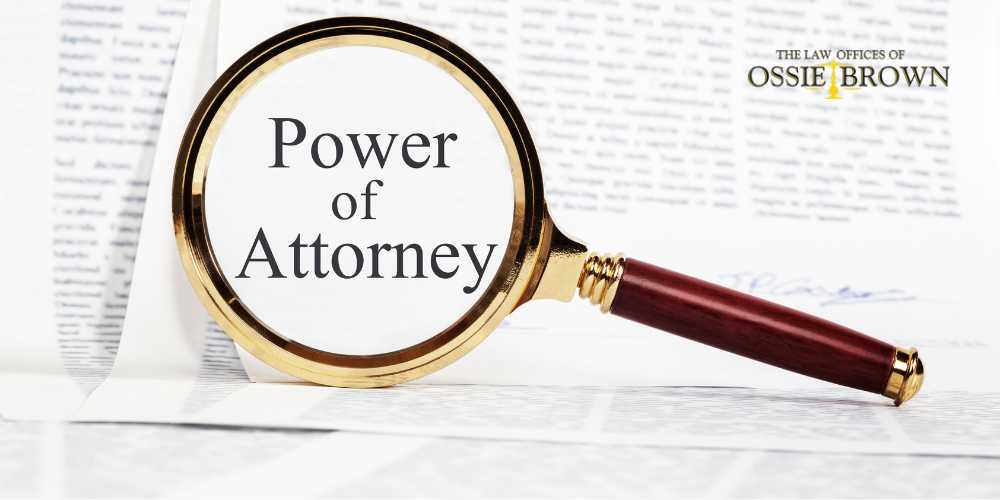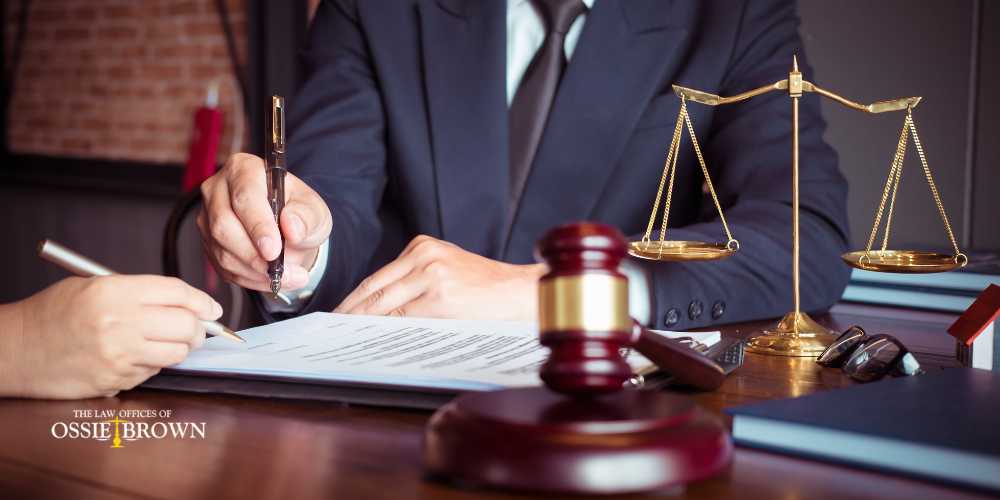Baton Rouge Power of Attorney Lawyer
Home / Estate Planning / Power of Attorney
Practice Areas

What is a Power of Attorney?
A power of attorney is one of the most important legal documents you can create, as it grants an attorney-in-fact or agent, known as the principal, the authority to act on your behalf. This document is crucial for managing healthcare and financial decisions if you become incapacitated or unable to make these decisions yourself, ensuring that the agent can step in to handle affairs effectively throughout their life.
Contact the Baton Rouge power of attorney lawyer group for a free consultation today.
Types of Power of Attorney According to Louisiana Law
Louisiana law recognizes several types of power of attorney, each designed for specific purposes.

General Power of Attorney
A general power of attorney is a legal document that grants broad authority to an agent, giving non-specific powers to handle a wide range of matters on behalf of the principal. These general powers include the ability to manage finances and legalities, including handling transactions, signing documents, and making financial and medical decisions. Thes powers of attorney are particularly useful if the principal becomes incapacitated, as it allows the agent to act with a high degree of flexibility. While it offers general powers without so much specificity, it is important to understand the implications, especially in the context of elder law, to ensure that the agent’s actions align with the principal’s wishes.
Financial Power of Attorney
A financial power of attorney focuses solely on financial decisions and legally binding contracts. It grants the agent authority to manage the principal’s finances, such as banking, investments, paying bills, and filing taxes. These powers of attorney do not continue in the event of the principal’s incapacitation unless it is specifically designated as durable.
Medical Power of Attorney
A medical power of attorney, also known as a healthcare power of attorney or healthcare proxy, allows the agent to have access to protected health information and make healthcare decisions on behalf of the principal if they are unable to do so themselves due to being incapacitated or legally incompetent. Common medical decisions typically involve medical treatments, surgeries, and end-of-life decisions. It is essential to appoint someone who understands your preferences and values to make appropriate medical decisions, such as a close family member or highly trusted individual.
Durable Power of Attorney
A durable power of attorney, whether for financial or medical matters, remains in effect even if the principal becomes incapacitated or legally incompetent in some way. In Louisiana, any powers of attorney can be made durable by including specific language stating that it survives the principal’s incapacity. A Baton Rouge estate planning attorney can make sure to include this language in your legal document if desired.
Limited Power of Attorney
A limited or special power of attorney grants the agent authority to perform specific tasks or make decisions on behalf of the principal. This grants limited powers for specific financial decisions, such as selling a property or managing investments, where the principal wishes to delegate limited authority without granting full control. Granting only certain powers to an agent can protect the principal from a complete loss of control over the estate and/or quality of life.
Springing Power of Attorney
A springing power of attorney only becomes effective when a specific event or condition occurs, such as the principal’s incapacity. It is essential to clearly define the triggering conditions, and a Baton Rouge power of attorney lawyer can help you do that.

Lousiana Power of Attorney FAQs
What Happens if I Don’t Have an Attorney-in-Fact?
If you do not have a designated attorney-in-fact and become incapacitated, your loved ones may face significant challenges when making important medical and financial decisions. In cases where there is no valid power in fact, they may need to pursue a time-consuming and costly court proceeding, which results in a court-appointed guardian managing their affairs.
Can You Revoke a Power of Attorney?
Yes, in Louisiana, you have the legal right to revoke powers granted to your agent at any time, as long as you are mentally competent to do so. Revocation typically involves drafting a written document stating your intention to revoke the existing POA and providing copies to relevant parties and institutions. It is advisable to consult with a Baton Rouge power of attorney lawyer to ensure the proper legal process is followed.
Can You Give Multiple People Power of Attorney?
Yes, you can appoint more than one person as your attorneys-in-fact, and you can specify whether they have joint or separate authority. For example, you can grant one person the power to make financial decisions and another the power to make medical decisions. When choosing multiple agents, it’s crucial to define their respective roles clearly to avoid potential conflicts.
Do You Have to Sign a Legal Document for Power of Attorney?
Yes, establishing a power of attorney in Louisiana requires signing a legal document. The document must adhere to specific legal requirements, such as being in writing, signed by the principal, and notarized. Additionally, Louisiana law requires at least two witnesses to be present for the document signing for some types of power of attorney. To ensure these important legal documents are legally sound and conform to Louisiana’s requirements, contact our power of attorney lawyers in Baton Rouge, Louisiana.
Do You Need a Louisiana Estate Planning Attorney to Establish a Power of Attorney?
It is possible to create a power of attorney without an attorney. Baton Rouge power of attorney lawyers, however, are strongly advised, as they can provide legal guidance, ensure that each legal document complies with Louisiana laws, and help you make informed decisions about the type and scope of authority you wish to grant.

Power of Attorney Lawyers in Baton Rouge, Louisiana
Need an estate planning attorney? Baton Rouge power of attorney lawyers at the Law Offices of Ossie Brown are here to help. Contact our law firm today at 225-343-1111 to schedule a consultation and take the first step toward securing your future and protecting your interests.
Free Consultation
Let us review your case at no cost to you. We want to take the time to get to know you and understand your legal goals and objectives.
Why Our Clients Trust Us
Your Law Firm for a Lifetime.
The attorneys at The Law Offices of Ossie Brown are skilled in several practice areas and ready to discuss your case. Contact us today to schedule your free consultation.

